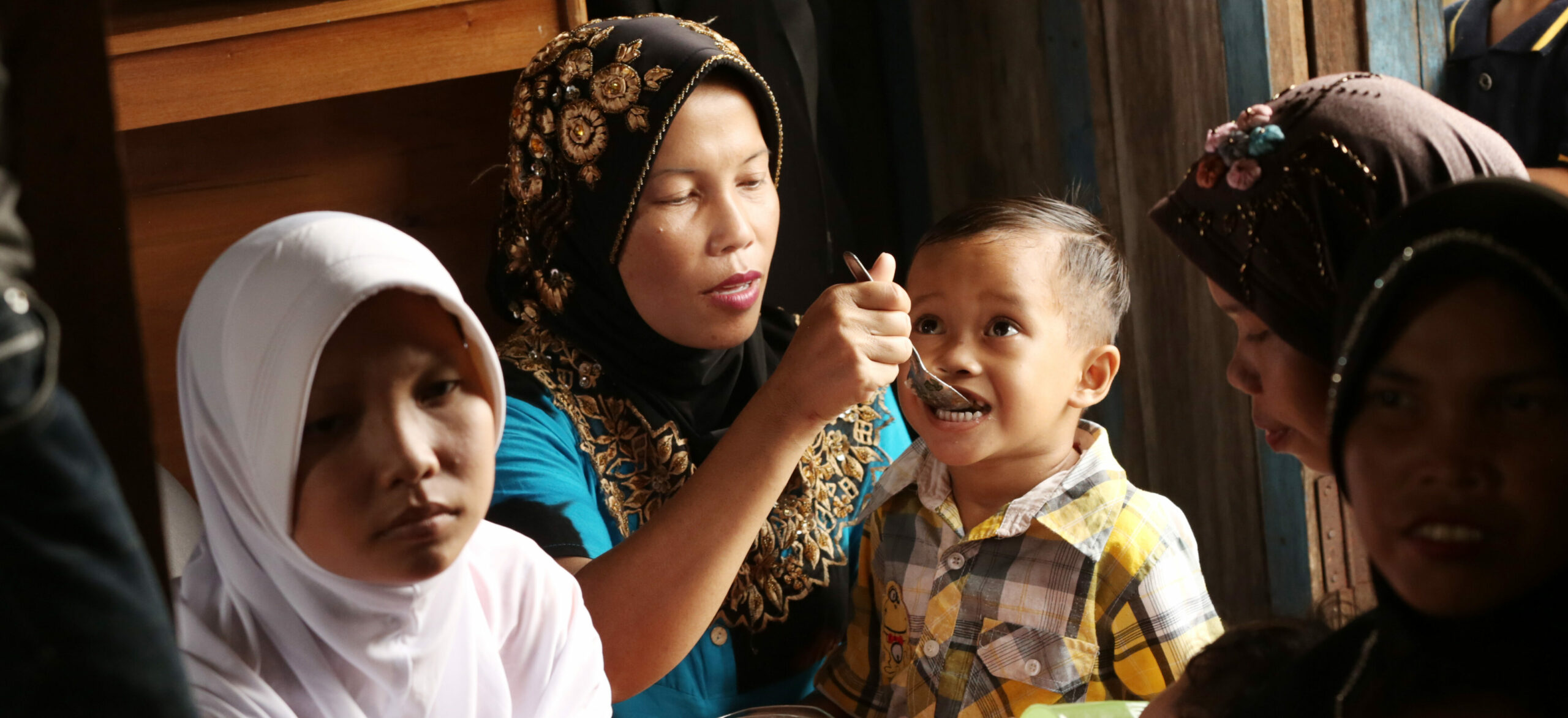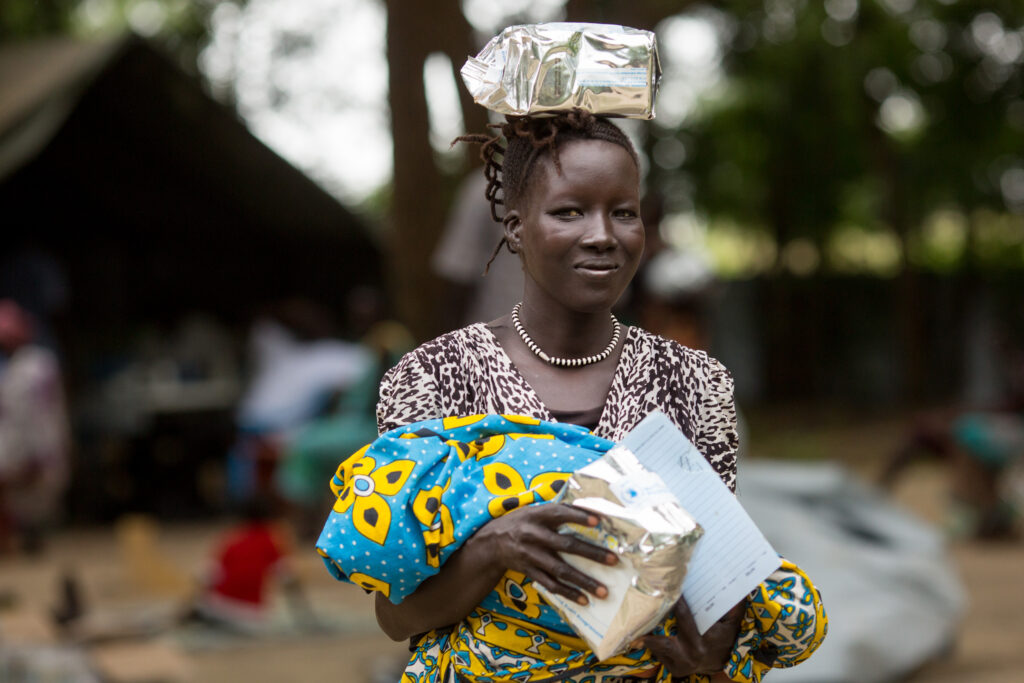Celebrating Mothers as Protectors of Health
Published on May 6, 2021

Let’s pause for a moment to recognize the role mothers play in keeping their families healthy. In countries where access to health facilities and community health services is limited, mothers have proven resilient in the most challenging circumstances. MOMENTUM tries to build on that resilience while recognizing all that mothers accomplish.
On any given day, in rural communities where health facilities and pharmacies are often far away, a mother administers care to her family. That includes making sure her children wake up every morning under the insecticide-treated bed netting she has kept in place to protect her family from mosquito-borne malaria. Or breastfeeding her hungry infant, learning from health workers that she’s unlikely to get pregnant again as long as she continues to breastfeed her daughter for the first six months.
She might discover her older child has a slight fever, so she treats him with acetaminophen and comforts him with a lukewarm, wet cloth. But that’s not all mothers face every day. Some mothers must deal with life-threatening illnesses, such as their child getting a bout of diarrhea, having to treat them with fluid replacement solution and zinc while still nursing their infant and preparing hot water over a simple gas burner.

MOMENTUM is working with partner countries to promote this type of self-care, defined by the World Health Organization as “the ability of individuals, families, and communities to promote health, prevent disease, maintain health, and to cope with illness and disability with or without the support of a health-care provider.”
Self-care interventions can effectively respond to shocks such as the COVID-19 pandemic that impact the delivery of quality health care, and ultimately, maternal and child survival. Self-care is currently a vital need, as worldwide, hundreds of millions of people lack access to essential health services1 according to the World Health Organization, and an estimated shortage of 18 million health workers is anticipated by 2030.2 At the same time, a record 160 million people are currently in need of humanitarian assistance, and disease outbreaks are a constant global threat.3
Around the world, there are thousands of mothers who are caregivers for their families and themselves. They are generally the first to triage childhood illness, provide recommended care for their babies, all while trying to monitor their own health.
MOMENTUM promotes other self-care interventions, including taking iron and folic acid tablets during pregnancy to prevent anemia, and the practice of handwashing and use of safe drinking water. We also advocate at national and sub-national levels for strengthened policies and practices to increase opportunities to share household and child-rearing tasks with other family members, including self-care. The results help to bring care and well-being closer to those who need it.
In addition, in many countries, MOMENTUM works with community health workers to ensure mothers have the knowledge and skills to administer self-injectable contraceptives. This enables women to use contraceptives at home rather than traveling to health clinics.
Mothers also have access into households and communities beyond anything the formal health system could create. Health systems should look at women not as passive users of health care services but as “protectors” of their own and their family’s health. Mothers have the potential to complement formal health services with self-care by preventing diseases, maintaining health, and coping with a range of conditions.
Health systems should look at women not as passive users of health care services but as “protectors” of their own and their family’s health.
They also have the potential to help improve local health coverage by reaching not only their own families, but also those who can’t access or don’t want to seek health care outside their homes or community. MOMENTUM works at all levels within partner countries to help ensure that mothers have what they need to remain a key part of health and resilience.
Such work, especially in areas where access to health facilities may be disrupted, provides families, and particularly mothers, with supplies and additional skills that can lead to stronger, healthier families and communities.
MOMENTUM Integrated Health Resilience works to improve access to and availability of high-quality, respectful, and person-centered MNCH/FP/RH care in fragile and conflict-affected settings. This project enhances coordination between development and humanitarian organizations and strengthens the resilience of individuals, families, and communities.
Maternal and Newborn Health
More mothers and infants can reach their full potential with increased equitable access to respectful quality health care delivered through public and private providers.
References
- Primary health care on the road to universal health coverage: 2019 monitoring report: executive summary. Geneva: World Health Organization; 2019 (https://apps.who.int/iris/bitstream/handle/10665/328913/WHO-HIS-HGF-19.1-eng.pdf?ua=1).
- Working for health and growth: investing in the health workforce. Report of the High-Level Commission on Health Employment and Economic Growth. Geneva: World Health Organization; 2016 (http://apps.who.int/ iris/bitstream/10665/250047/1/9789241511308-eng.pdf).
- Global humanitarian overview 2021. Geneva: UN Office for the Coordination of Humanitarian Affairs; 2021 (https://reliefweb.int/sites/reliefweb.int/files/resources/GHO2021_EN.pdf).

